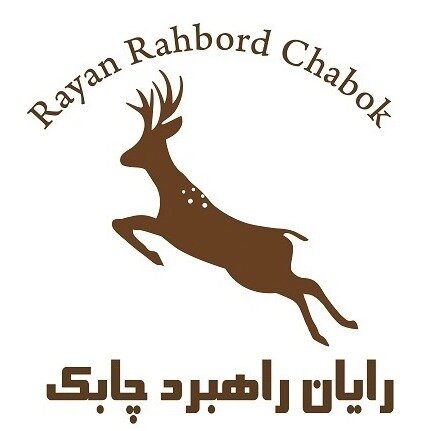Best Employment & Labor Lawyers in Tehran
Share your needs with us, get contacted by law firms.
Free. Takes 2 min.
List of the best lawyers in Tehran, Iran
About Employment & Labor Law in Tehran, Iran
Employment and labor law in Tehran, Iran, is a crucial aspect of the legal framework that governs the relationship between employers and employees. These laws are designed to protect workers' rights, ensure fair treatment, and impose obligations on both employees and employers. Key subjects of employment and labor law typically include employment contracts, workplace safety, wages, working hours, dispute resolution, and job termination. In Tehran, these laws are influenced by both local regulations and the broader legislative framework of Iran, so understanding these nuances is essential for both workers and employers operating in the region.
Why You May Need a Lawyer
There are numerous situations where seeking legal advice in employment and labor matters can be beneficial. Common scenarios include wrongful termination, disputes over wages or working hours, workplace discrimination or harassment, issues pertaining to employment contracts, and violations of health and safety regulations. Having a lawyer can help in negotiating settlements, representing the employee or employer in legal proceedings, and providing clarity on rights and obligations under Iranian law. Furthermore, in complex cases, expert legal advice is crucial to navigating the intricate legal landscape and achieving favorable outcomes.
Local Laws Overview
Iran's labor laws are outlined in the Labor Code, which sets the standards for employment relationships, worker rights, and employer responsibilities. Key aspects include:
- Employment Contracts: Employers are obligated to provide written contracts that specify job descriptions, wages, working hours, and other employment terms.
- Working Hours: The standard working week in Iran is 44 hours, with provisions for overtime pay.
- Wages: The government-set minimum wage must be adhered to by all employers, with annual reviews to consider inflation rates and living costs.
- Job Termination: The Labor Code outlines valid reasons and procedures for terminating employment, including requirements for notice periods and severance pay.
- Safety Regulations: Employers must ensure safe working environments, complying with health and safety standards to prevent workplace hazards and accidents.
- Dispute Resolution: The Ministry of Cooperatives, Labor and Social Welfare mediates labor disputes, requiring both parties to attempt resolution before escalating to court.
Frequently Asked Questions
What is the minimum wage in Tehran, Iran?
The minimum wage in Tehran is set annually by the Supreme Labor Council and is influenced by inflation rates and the cost of living. Employers are required by law to adhere to the stipulated wage.
Are employment contracts required to be in writing?
Yes, Iranian labor law mandates that employment contracts must be in writing, clearly outlining the terms of employment, including rights and responsibilities for both parties.
What are my rights if I am wrongfully terminated?
If you believe you have been wrongfully terminated, you have the right to seek legal advice. You can approach the Ministry of Cooperatives, Labor and Social Welfare for mediation or pursue further legal action through the courts.
How are disputes between employers and employees resolved?
Disputes are typically mediated by the Ministry of Cooperatives, Labor and Social Welfare. If mediation fails, the matter may be taken to the labor court for further resolution.
What laws protect against workplace discrimination?
The Iranian Labor Code prohibits discrimination on various grounds and ensures equal rights and treatment for all workers, though this can be complex in practice.
How many days of annual leave am I entitled to?
According to the Labor Code, employees are entitled to a minimum of one month (30 days) of paid leave annually, which includes vacation days and public holidays.
What should I do if my employer is not adhering to workplace safety regulations?
If workplace safety regulations are not being followed, employees should report the issue to the Ministry of Cooperatives, Labor and Social Welfare for inspection and enforcement action.
Can I work more than the standard 44 hours per week?
Yes, but any hours worked beyond the standard 44-hour week must be compensated as overtime, with pay rates as stipulated by the Labor Code.
What protection do I have if I am injured at work?
Workers injured on the job are entitled to medical care and compensation under Iran's workers' compensation laws, with claims often processed through the Social Security Organization.
Can my employer change my contract terms without consent?
An employer cannot unilaterally change the terms of an employment contract without the employee’s consent. Any amendments must be mutually agreed upon and documented.
Additional Resources
For individuals seeking more information or assistance, several resources and organizations can provide help:
- Ministry of Cooperatives, Labor and Social Welfare: Responsible for mediating labor disputes and enforcing labor laws.
- Iran Chamber of Commerce: Offers resources and guidance for businesses and employers in Iran.
- Trade Unions and Workers' Associations: Provide support and representation for workers in various sectors.
- Local Law Firms: Specializing in employment and labor law, offering legal advice and representation.
Next Steps
If you need legal assistance in employment and labor matters, start by gathering all relevant information and documents related to your issue. Consider consulting a lawyer specializing in Iranian labor law to discuss your situation and explore your options. Initial consultations can provide clarity on the necessary steps, whether it's pursuing mediation, negotiation, or legal action. Utilize local resources, including government and professional organizations, to aid the process and ensure your rights are protected.
Lawzana helps you find the best lawyers and law firms in Tehran through a curated and pre-screened list of qualified legal professionals. Our platform offers rankings and detailed profiles of attorneys and law firms, allowing you to compare based on practice areas, including Employment & Labor, experience, and client feedback.
Each profile includes a description of the firm's areas of practice, client reviews, team members and partners, year of establishment, spoken languages, office locations, contact information, social media presence, and any published articles or resources. Most firms on our platform speak English and are experienced in both local and international legal matters.
Get a quote from top-rated law firms in Tehran, Iran — quickly, securely, and without unnecessary hassle.
Disclaimer:
The information provided on this page is for general informational purposes only and does not constitute legal advice. While we strive to ensure the accuracy and relevance of the content, legal information may change over time, and interpretations of the law can vary. You should always consult with a qualified legal professional for advice specific to your situation.
We disclaim all liability for actions taken or not taken based on the content of this page. If you believe any information is incorrect or outdated, please contact us, and we will review and update it where appropriate.
Browse employment & labor law firms by service in Tehran, Iran
Tehran, Iran Attorneys in related practice areas.














